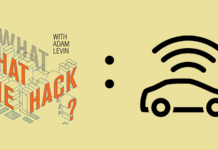The cyber world, much like the real one, is filled with trade-offs and compromises.
For instance, a VPN (virtual private network) may offer more privacy and security, but it can be a drag on your connection speed. Apple champions privacy, but plans obsolescence; you can’t replace a battery in an iPhone or upgrade your hardware without buying an entirely new device.
Then there’s Facebook, which takes a close second place right after the Trump administration for making daily headlines.
One of Facebook’s bigger claims to infamy is their complicity in the 2016 election where they, according to their CSO’s own admission, “ran roughly 3000 ads… connected to about 470 inauthentic accounts and Pages,” which were “likely operated out of Russia.” The company committed to working to stop “misinformation and false news.”
Having a measure to stop Russian interference in our political, social, and civic lives sounds like a grand idea, and their commitment to it sounds great on paper.
But will it work?
When trying to boost a recent apolitical post about a proposed new privacy law in California, Facebook declined the promotion because I didn’t verify my identity. In the wake of the “fake news” election, running any kind of ad that promotes something political, you need to submit the following to Facebook:
- Your address
- Your photo ID
- The last 4 digits of your Social Security number
The company that allowed its user data to be accessed by companies such as Cambridge Analytica, accidentally publicly exposed data on 14 million users, and shared its user data with Chinese mobile device manufacturers, as well as Apple, Google, Microsoft, and Samsung wants three personal details that identify me.
Facebook, which has a network of cookies and tracking software to keep data on everyone online (including non-Facebook users), whose mobile app listens to you through your phone and even tracks the velocity at which you travel, expects to have us trust them with our offline data.
That’s a hard lift.
In a word, my response is: “No.” In two words, “Hell no.” Minimizing the impact of Russia and other bad actors on the world stage is a welcome initiative. That can’t be denied. But Facebook has not earned the right to ask its users for any more information. It’s like the Big Bad Wolf requesting the location of each and every plump child in the forest.










